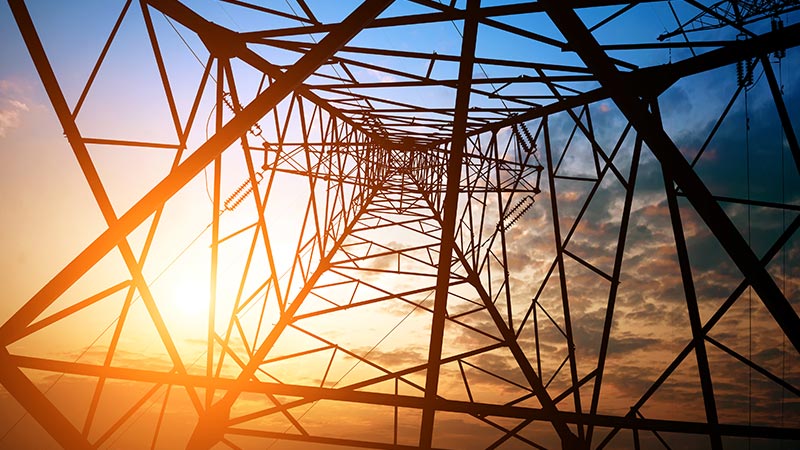The Province of Alberta recently launched its Site Rehabilitation Program (SRP), which provides grant payments to oil field services companies to abandon, and /or reclaim upstream oil and gas infrastructure. The program runs from May 1, 2020 to March 31, 2022, providing grant funding to successful applicants who are oil field contractors (the contractor).
Under the program, the contractor is paid directly for their services by Alberta Energy, however, they must issue an invoice to the oil and gas licensee for work completed. According to program guidelines, the invoice must not include GST.
MNP asked who, then, is liable to pay the GST? And how does the contractor avoid being audited and penalized for not charging GST?
Provincial invoicing requirements
As part of a funding agreement with Alberta Energy, the contractor is required to have entered into, and comply with, an oil field service (OFS) contract with an oil and gas company (the licensee), who has a business associate code with Alberta Energy (the province provides different type of associate codes to licensees for all types of wells, facilities and pipelines).
Grant payments are made directly from Alberta Energy to the contractor. Licensees themselves cannot directly receive the grant payments. Successful grant applicants must follow the Invoice and Reporting Guidelines, which were first released by Alberta Energy on August 27, 2020. When submitting a payment request, contractors are required to submit a copy of its invoice that was issued to the licensee for work completed.
Conditions are attached to the invoicing requirements including that the invoice must not include any ineligible costs such as:
- Administration fees
- Costs of work to prepare for contract bids, grant applications or project contracts
- Similar costs not directly incurred in relation to eligible closure activities
- Non work-related expenses
Also, specific mention was made that "the invoice must not include GST."
Federal GST / HST rules around supplies
We were concerned with this condition as it would most likely lead to having contractors being exposed for a potential GST audit assessment for failing to collect GST on its services. The issues from a GST perspective include:
- Who is the contractor providing services to?
- Is the SRP funding consideration a supply of services or is it a grant?
The Province of Alberta does not pay GST on it purchases of property and services. In our review of sample documentation, it is clear the contractor has entered into a contract with the licensee and issues the invoice for its services to the licensee, while the province is paying its program funding directly to the contractor.
So, who is the contractor making the supply to?
- If the supply is made to the Alberta government, then no GST should be charged
- If the supply is made to the licensee, the contractor should be charging GST
Supply vs grant
The Excise Tax Act (the ETA) defines the "recipient" of the supply to mean:
- Where the consideration for the supply is payable under an agreement for the supply, the person who is liable under the agreement to pay that consideration,
- Where paragraph (a) does not apply and consideration is payable for the supply, the person who is liable to pay that consideration, and
- Where no consideration is payable for the supply,
- In the case of a supply of a service, the person to whom the service is rendered.
For Alberta Energy to be established as the recipient of the supply, it must be liable to pay consideration for a supply. The SRP is characterized as a grant or transfer payment program with two stated public purposes (job creation and environmental reclamation). The environmental obligation belongs to the licensee and from the SRP, is being assisted in meeting its environmental obligations on well site abandonment.
Based on CRA administrative policy, we suggest that the SRP funding is most likely a grant and not consideration for a supply.
Furthermore, the SRP requires the contractor and licensee to have a contract for the contractor to provide oil field services for site rehabilitation work. This agreement may, at least in part, document the licensee is liable for some of the costs (ineligible costs). Even if there is no financial liability for the licensee established within the contract, we have paragraph (c) the services are being rendered to the licensee as the licensee benefits from having its environmental obligations fulfilled.
Avoid an audit
Accordingly, in our discussions with oil field service providers we have been advising they should charge GST to the licensee, in spite of the province's stated guidelines. We remain concerned that contractors may be assessed by the Canada Revenue Agency (CRA) for failing to collect GST on these services.
On October 6, 2020, the province appeared to confirm our concerns and updated their website with the following statement:
Abandonment, remediation, and reclamation work activities conducted under an SRP contract are not GST exempt. However, GST is not eligible for SRP grant funding. For this reason, SRP funding will not cover the GST that is included on invoices from the oil field service company to the licensee. While GST will show up on your invoice, do not include GST as part of the total amount requested for your interim and final grant payment requests. SRP contractors will not receive grant funding to cover GST.
We continue to recommend contractors charge GST on invoices to licensees. Licensees will need to pay the tax to the contractor and the licensee can recover this amount as an input tax credit (ITC) on its GST return. Failure to indicate GST on invoices leaves the contractor open to an assessment by the CRA for failing to charge GST on the taxable supply of services.
For more information on indirect tax issues, contact Danny Crawford, CPA CMA, at 780.969.1426 or [email protected].

Access Exclusive Content
Sign up to receive alerts on initiatives, new whitepapers, events and insights tailored specifically for the energy and utilities industry.






